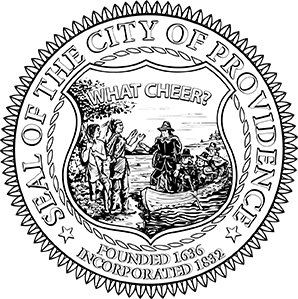It’s Saturday morning and time to make breakfast. You crack eggs, slice veggies, brew coffee and perhaps – if you’re really ambitious – squeeze oranges for the freshest of juices. You’re well on your way to enjoying a delicious omeletty meal with some refreshing beverages to boot, but what about the rest of the meal? The egg shells, vegetable trimmings, fruit peels, and coffee grounds that go straight in the bin and end up weighing down and stinking up your kitchen trash? These scraps are not trash. They’re valuable materials that create organic, healthy, rich compost, which we need to improve our local soils and grow more of the Rhode Island-sourced food people love.
Food Waste Feeding Climate Change
Much of the food we throw away can be rescued, used as animal feed, or turned into compost. According to a 2018 report released by the US Department of Agriculture, American households waste 150,000 tons of food per year – equal to about a pound per person per day. That’s like taking one average sized plate of food per day and tossing it straight in the garbage. This is particularly alarming when you consider that, according to the USDA, 11.6 percent of Americans didn’t have access to enough food to live a healthy life in 2017. While food waste is a complex issue that cannot be solved by composting alone, composting can prevent all those kitchen food trimmings and scraps, plus our leaf and yard waste, from entering our overburdened landfill.
A study by Rhode Island Resource Recovery Corporation (RIRRC) finds that organic waste such as food scraps and yard debris make up 30-35 percent of all the waste going to Rhode Island’s landfill, which is expected to fill up by 2034. Food and other organic material that sit and rot in the landfill also add harmful methane – a greenhouse gas roughly 30 times more potent than CO2 – into our atmosphere. To put this into perspective, a 2011 report by the United Nation’s Food and Agriculture Organization found that if food waste were a country, it would be the third highest emitter of greenhouse gases in the world behind China and the United States.
Growing a Providence Composting Industry
Not only does composting help prolong the life of Rhode Island’s landfill and protect our climate, it’s also a critical ingredient for healthy, productive soils. As such, it’s an important part of the Sustainable Providence plan and is being integrated into the upcoming Providence Climate Justice plan.
The Office of Sustainability is exploring options to support and promote composting operations throughout Providence. In 2014, the City began these efforts by partnering with the South Side Community Land Trust and Earth Appliance Organics to pilot the Providence Composts! program and continues to connect with composting advocates via the Zero Waste Providence (ZWP) compost group. We’re also engaging with local restaurants and private compost haulers to look holistically at the entire state’s seed → food → food waste → compost → seed cycle, and how to address gaps in the chain that act as barriers to a robust local composting sector.
As part of this work, on February 4, 2019 we partnered with ZWP and the Center for EcoTechnology to host an event connecting restaurants with local compost operations. This event began a valuable dialogue that will help inform the ZWP group and our office to get 100 Providence restaurants composting by 2020 (click here to see which restaurants are already composting in PVD!). The Office of Sustainability is also looking at various “Green Business” incentive/recognition models which would hopefully encourage local businesses to engage in multiple sustainable practices, composting being a core component.
There are already composting businesses operating in Providence, and in 2018, the Compost Depot at Frey Gardens became Providence’s first registered compost facility and the only medium-scale composting facility in Rhode Island. Also in 2018, services like Harvest Cycle, Bootstrap Compost, and Frey Gardens diverted at least 27.1 tons of Providence-generated food waste from entering Rhode Island’s landfill and turned those scraps into life-giving compost. When you include operations like the Compost Plant which services many Providence restaurants and large institutions, the real number is likely twice that amount.
Making Black Gold: Current Options for Composting in Providence
Momentum around sustainable and widespread composting is growing. Join this movement by exploring actions that you can take right now to turn your food, leaf, and yard waste into valuable compost. If you have a little bit of space to spare in your yard, you can purchase a compost bin for just $35 from the City and make your own compost to rejuvenate your soil. Don’t have the space or looking for a simpler way to reduce your food waste? There are multiple options for food scrap pick-up and drop-off services across Providence. If you are looking to get rid of your yard debris but can’t compost it yourself, the City offers leaf and yard waste pickup mid-April through mid-December. Put out clearly labeled yard waste next to your trash and recycling carts on designated trash pickup days and RIRRC will turn it into compost, which you can purchase and use to create healthy, green space.
Interested in getting more involved in the compost conversation, or know of other Providence-based compost operations not mentioned here? Connect with Zero Waste Providence’s compost group, or reach out to SustainPVD@providenceri.gov with any questions or comments.

